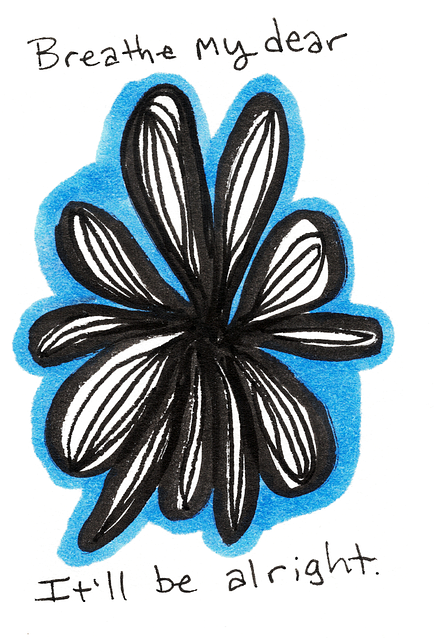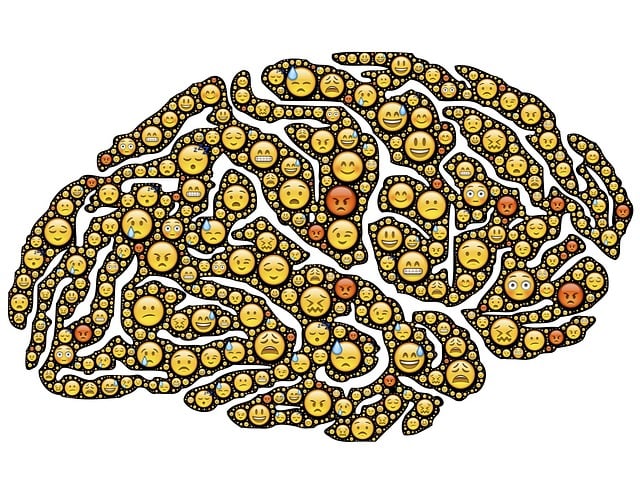In today's digital era, mental wellness apps like Boulder Christian Counseling Therapy have gained popularity for their accessibility and convenience. These apps offer private access to therapeutic resources, from stress management to intensive support, empowering users to manage their mental health through features like mood tracking and mindfulness exercises. They reduce stigma by providing easy risk assessments and cater to diverse needs with personalized therapy sessions, burnout prevention programs, and trauma support services based on evidence-based practices. The development process involves market research, design, and feedback integration, culminating in marketing strategies that target specific audiences with SEO keywords like "Boulder Christian Counseling Therapy" and emphasize engaging content, self-care practices, and interactive elements to drive user retention.
In today’s fast-paced world, mental wellness app development has become a pivotal tool for promoting psychological well-being. With increasing demand for accessible therapy solutions, apps like Boulder Christian Counseling Therapy offer discrete, personalized support. This article explores the growing necessity of these applications, delving into their essential features and functionality, and outlining the comprehensive development process from concept to launch. We also discuss effective marketing strategies and user engagement tactics to ensure successful app adoption.
- Understanding the Need for Mental Wellness Apps
- Features and Functionality of Effective Apps
- Development Process: From Concept to Launch
- Marketing and User Engagement Strategies
Understanding the Need for Mental Wellness Apps

In today’s fast-paced world, mental wellness has become an increasingly important aspect of overall health and well-being. The demand for accessible and convenient solutions to support mental health is higher than ever, leading to a surge in interest for mental wellness apps. One such example is Boulder Christian Counseling Therapy, which recognizes the need for digital tools that can provide effective coping skills development and promote mental health awareness.
These apps offer a discrete and private way for individuals to access resources, engage in therapeutic practices, and track their progress. They cater to a wide range of users, from those seeking stress management techniques to those requiring more intensive support. By incorporating features such as mindfulness exercises, mood tracking, and personalized recommendations, mental wellness apps empower users to take charge of their mental health. Moreover, they play a vital role in reducing the stigma associated with seeking professional help by providing easily accessible risk assessment tools for mental health professionals, ensuring individuals receive timely interventions and support when needed.
Features and Functionality of Effective Apps

Effective mental wellness apps are designed with a user-centric approach, prioritizing features that cater to diverse needs. Key functionalities include personalized therapy sessions, accessible through video conferencing tools like Boulder Christian Counseling Therapy, enabling individuals to connect with professionals from the comfort of their homes. These platforms often incorporate interactive tools such as mood trackers and meditation guides tailored to individual users’ progress.
Additionally, successful apps offer Trauma Support Services and Burnout Prevention programs, incorporating evidence-based practices to help users manage stress and anxiety. Many also feature Mental Health Education Programs Design, providing informative content on various mental health topics, fostering a deeper understanding of one’s emotional well-being. These comprehensive features work in harmony to create an immersive experience, empowering users to actively participate in their mental wellness journey.
Development Process: From Concept to Launch

The development process of a mental wellness app, like those offering Boulder Christian Counseling Therapy services, involves several stages that transform an initial concept into a launched product. It begins with thorough market research to understand user needs and existing solutions. This phase is crucial for identifying unique selling points and features that set the app apart, ensuring it caters to specific gaps in the mental health space.
Next, designers and developers collaborate on creating wireframes and prototypes, shaping the app’s structure and functionality. This iterative process involves continuous feedback from stakeholders, therapists, and potential users to refine the user experience (UX). Incorporating techniques for emotional well-being promotion, such as mindfulness exercises or mood tracking, becomes integral during this design phase. As development progresses, focus shifts to implementing features related to inner strength development and emotional regulation, ensuring the app provides practical tools for managing mental health effectively.
Marketing and User Engagement Strategies

In the competitive market of mental wellness apps, effective marketing and user engagement strategies are essential for standing out. Incorporating SEO-optimized keywords like “Boulder Christian Counseling Therapy” can help attract a targeted audience seeking specialized support. Beyond search engine rankings, engaging content that highlights unique features and benefits will captivate users. Implementing self-care practices and emotional healing processes within the app can foster user loyalty.
Leveraging communication strategies to create a sense of community, such as forums or peer-to-peer messaging, encourages ongoing engagement. Additionally, integrating interactive elements like daily prompts, mood tracking, and personalized recommendations not only enhances user experience but also aids in understanding individual needs. These approaches collectively contribute to a successful marketing strategy that retains users and promotes the app’s value proposition.
Mental wellness apps have emerged as powerful tools in addressing the growing need for accessible, personalized therapy. By combining technology with professional counseling, these applications offer a convenient and discrete way for individuals to improve their mental health. As demonstrated by the success of services like Boulder Christian Counseling Therapy, app development in this space can significantly impact lives, providing timely support and resources for those seeking guidance. Through careful consideration of user needs, innovative design, and effective marketing strategies, creators can develop apps that not only meet but exceed expectations, fostering positive mental wellness on a global scale.














